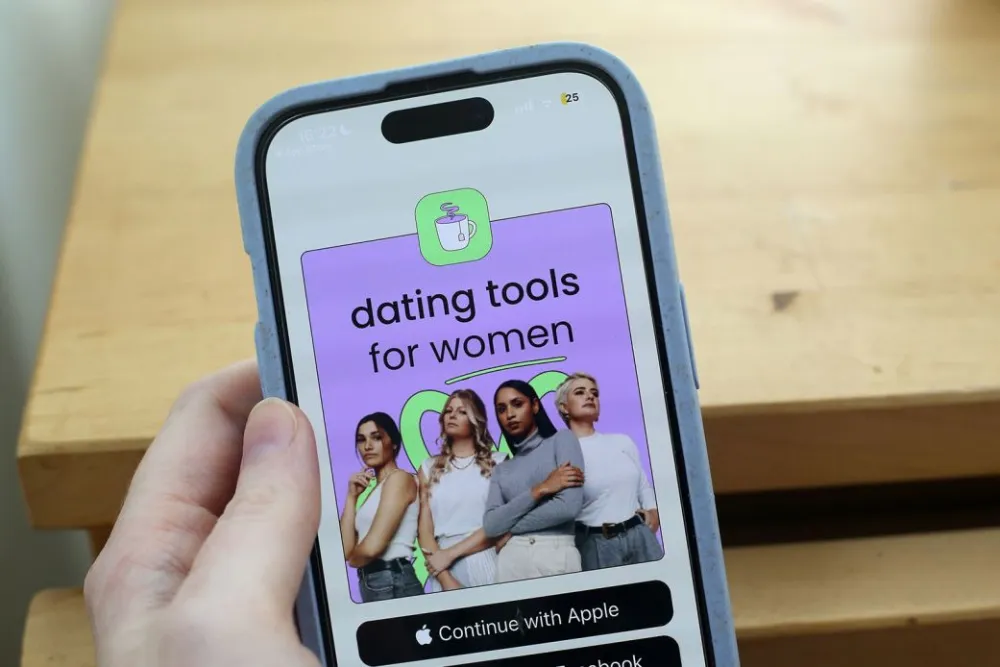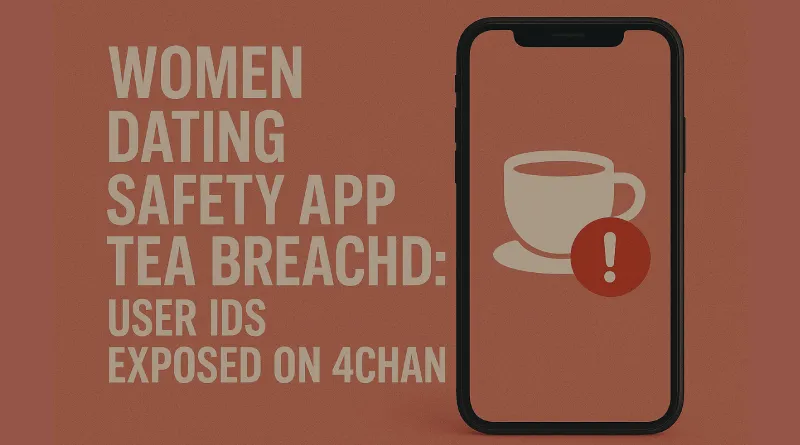Women Dating Safety App Tea Breached: User IDs Exposed on 4chan
The Tea app, a women-only platform designed to enhance dating safety by allowing users to anonymously share reviews about men, has been thrust into the spotlight following a significant data breach. On July 25, 2025, Tea confirmed that approximately 72,000 user images, including 13,000 verification selfies and government IDs, were exposed online after unauthorized access to a legacy database. The breach, first reported by 404 Media after 4Chan users discovered an unsecured database, has sparked widespread concern about privacy and the risks of identity verification in digital platforms. This article explores the Tea app’s mission, the details of the breach, its implications, and unique insights into its impact, with a focus on local context and credible data.
Understanding the Tea App
Tea was established in 2023 by venture capitalist Sean Cook, with travel adventures as a former executive of Salesforce and Shutterfly. Inspired by disturbing stories by his own mother of dating online and having been an audience to catfishing and meeting men with unknown criminal records. The app, which topped the lifestyle category of the US Apple App Store in July 2025, has more than 4 million users, going by the Instagram message posted by Tea. This is a form of a “virtual whisper network” wherein women can anonymously share photos, names, and reviews of men and flag them as either a red flag or a green flag to either point out the warning signs or a positive characteristic.
The features of Tea are AI reverse image search, phone number search to reveal hidden connections, and additional background checks. The application also provides a sex offender map and community chat to resolve advice, thereby marketing itself as a power and safety instrument. Users require posting selfies and government identification as they enter the service that is then deleted after being checked to make sure that only women use the service, Tea states. The app prevents screenshots in order to support the privacy of the users and give 10 percent of their income to the National Domestic Violence Hotline.
The Data Breach: What Happened?
Tea reported on July 25, 2025, a breach of an older data storage system done without authorization impacting people who used Tea before February 2024. The leak involved 72,000 pictures, most of which were verification selfies (some with driver licenses or other photographs), and 59,000 images that appeared on the public posts, comments, and direct messages on the app. The spokesperson at Tea said that no email addresses or phone numbers were hacked. This was as a result of not securing the database, which was hosted in the Google Firebase platform but was accessed by the users of 4Chan without authentication, according to 404 Media. A URL posted on 4Chan unveiled a list of attachments through a URL that was soon jammed after getting known.
According to Tea, the unrevealed information was retained due to the need to meet the requirements of cyberbullying prevention, but it has been lamented by critics since there was neither encryption nor access control. X posts referred to the database as a public bucket, a reference to the fact that the sensitive information did not get locked on the app. Tea has contracted third-party cybersecurity researchers to proceed with the investigation and protect its systems, claiming that no other user data had been compromised.

Unique Insights: Privacy vs. Safety
The scandal highlights one of the most important dilemmas between the fact that Tea aims at promoting dating security and the security of storing sensitive information about users. Any selfies and government ID will have to be verified to create a women-only space, a place where a woman can have conversations that should otherwise be given to women. However, this has been a two-sword. Splashing of identification documents increases the possibilities of identity theft, stalking, or the process of doxxing, as was noted by Trey Ford, a cybersecurity expert. The affair even casts doubt on the statement issued by Tea that verification photos are removed after review, since the leaked data contained verification photographs more than two years older, which goes against the privacy policy.
At a local level, the US is not the only place where Tea can apply; other places where online dating apps such as Tinder and Bumble are increasing in usage arethe 700 million internet users in India (Statista, 2025). Nevertheless, the cultural and legal situation in India, wherein the primary privacy legislation, such as the Digital Personal Data Protection Act (DPDP), focuses on consent and data minimization, is problematic for such apps as Tea. In India, the ease of availability of criminal records in a public database is non-existent, and this restricts the functionality of the app as compared to the US, which may hurt its attractiveness. Moreover, cultural norms on the discussion of dating experiences outside the privacy of homes might also keep Indian women away from a complete use of the platform.
Implications and Controversies
The ethical implication of Tea has been a contentious issue that has been made more intense by the breach. Women boast of the app helping them to evade risky partners, and users on Reddit and TikTok have even posted stories on how previous experiences led to the discovery of major red flags, including criminal records of domestic violence. Nevertheless, the critics, especially men, complain that Tea allows unverified claims and possibilities of defamation since a man lacks the ability to access and reply to their reviews. This backlash is apparent in a 4Chan thread, which called to conduct a “hack and leak” against people using the app, symbolizing its polarizing feature.
There is also a larger issue of identity verification on the Internet, which is raised by the event. Security vulnerabilities on platforms like Tea compromise the security of the websites, as platforms become the more likely places to enter IDs in order to prevent fraud or verify the authenticity of a user. Cybersecurity professionals suggest end-to-end encryption and security audits to prevent such weaknesses. The competition adds a wrench because in the future, imitations of successful apps, also known as copycat apps, may arise, like the soon-to-close Teaborn, which attracted criticism due to the promotion of revenge porn.
Moving Forward: Lessons and Recommendations
The example of tea violation acts as a warning to apps that deal with sensitive information. On its part, Tea needs to be more open in sharing the findings of its investigations and institute stringent security measures in addition to providing clarity on its data retention policies to restore its reputation. Users, in their turn, must be careful with the information they provide even on those sites that are supposed to be safe. In such places as India, where dating applications have become extremely popular, it is very important to realize the threats related to data disclosure, as laws can secure it differently.
To sum up, the fact that the Tea app abused the power it had over users reveals how thin the line between privacy preservation and user empowerment is. Although the importance of its goal to make dating safer cannot be overestimated, the incident highlights the significance of strict security measures. In negotiating this crisis, how Tea responds in turn will define the future of the company and determine the extent to which the larger narrative about privacy, safety, and responsibility in online dating plays out.
Disclaimer
The information presented in this blog is derived from publicly available sources for general use, including any cited references. While we strive to mention credible sources whenever possible, Web Techneeq – Seo Company in Andheri does not guarantee the accuracy of the information provided in any way. This article is intended solely for general informational purposes. It should be understood that it does not constitute legal advice and does not aim to serve as such. If any individual(s) make decisions based on the information in this article without verifying the facts, we explicitly reject any liability that may arise as a result. We recommend that readers seek separate guidance regarding any specific information provided here.

